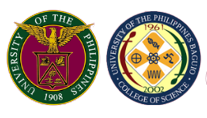(*Excerpt from the UP General Education Framework, 2017)
UP GE Philosophy
The UP GE philosophy is an ethos characterized by the following key principles:
- It is liberal, holistic and integrative (non-specialist), and non-utilitarian in orientation. It develops in students not only measurable skills or competencies but, more importantly, the capacity for and capabilities in both critical and creative thinking and action.
- It reflects and promotes the loftiest principles at the core of a UP education. It goes beyond inculcating habits of thought and ways of perceiving to the ideals of humanism and nationalism (pagiging makatao at pagiging makabayan).
- It is a transformative education, enabling students to change themselves, their worldview, and their world. It encourages creative and constructive action that contributes to the improvement of the student's community, the nation, and the world, based on a deep understanding of being Filipino in the 21st century — that is, with a strong sense of one's cultural and historical identity as well as a sense of a shared humanity.
General Education Objectives
The UP GE program aims to develop leadership characterized by integrity and honor, excellence, and a commitment to public service, the hallmarks of a UP education. To this end, the UP GE program shall provide students with a broad foundation of study that will:
- broaden intellectual and cultural horizons;
- hone critical and creative thinking;
- develop a passion for learning and scholarship;
- cultivate a high sense of intellectual and moral integrity; and
- foster a commitment to nationalism and social justice
GE Curriculum Structure
In line with the GE philosophy, the UP GE curriculum is a streamlined interdisciplinary curriculum consisting of 21-36 units of core and elective GE courses drawn from the arts and humanities; social sciences and philosophy; and mathematics, science, and technology domains.
GE Courses Offered by the College of Science
| New GE Courses | Description | Units |
| Core GE Courses | ||
| SCIENCE 10 |
Probing the Physical World Understanding the origin of the universe, synthesis of the elements, formation of the earth and the various critical. issues affecting our world view and our planet through the methods and interconnected concepts of the physical sciences. |
3 |
| SCIENCE 11 |
Living Systems: Concepts and Dynamics Principles, interactions, and contemporary issues concerning living systems. |
3 |
| STS 1 |
Science, Technology and Society Analyses of the past, present and future of science and technology in society (including their nature, scope, role and function) and the social, cultural, political, economic and environmental factors affecting the development of science and technology, with emphasis on the Philippine setting. |
3 |
| Elective GE Courses | ||
| CHEM 1 |
Chemistry: Science that Matters Basic chemistry concepts relevant to everyday life. |
3 |
| GEOL 1 |
Our Dynamic Earth The study of how the Earth works, its place in the universe, and the relationship between people and the physical environment. |
3 |
| MATH 10 |
Mathematics, Culture and Society Appreciation of the beauty and power of mathematics through the examination of its nature, development, utility, and relationship with culture and society. |
3 |
Here are videos on select GE course topics:
1. SCIENCE 10 : How do we study the physical world?
2. SCIENCE 11: Introduction to Living Systems
3. SCIENCE 11: Dynamics and Interactions of Living Systems with their environments
4. SCIENCE 11: Contemporary Issues on Living Systems
5. SCIENCE 11: Sustainability concepts and their Cultural Expressions
6. STS 1: Interaction of Science, Technology and Society through time
7. STS 1: Conotoxins
8. STS 1: Magnetotactic bacteria

